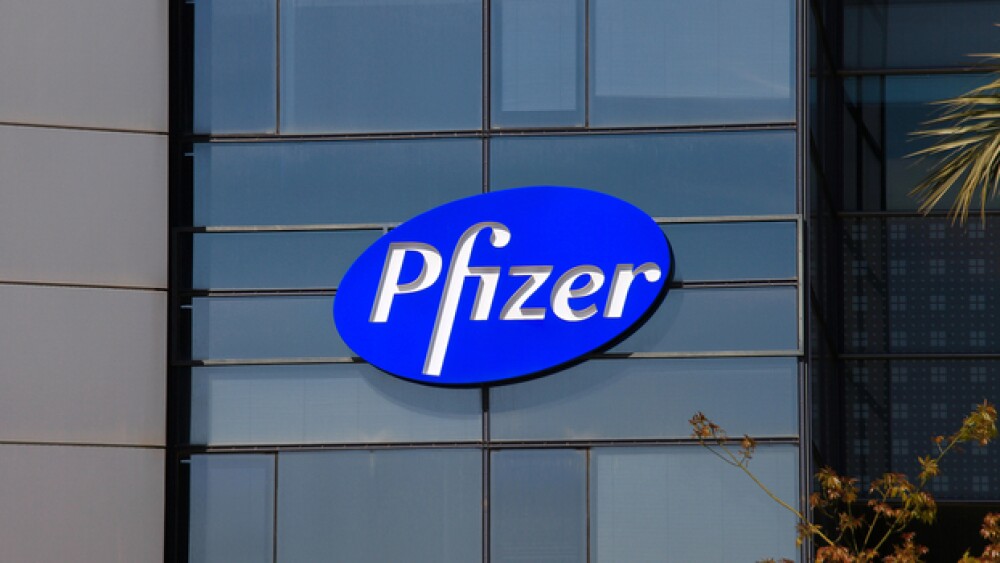The FDA approved Vyndaqel (tafamidis meglumine) and Vyndamax (tafamidis) as the first treatments for transthyretin-meditated amyloidosis.
StockStudio / Shutterstock
A nine-year-old drug acquisition for Pfizer has paid off with a nod from the U.S. Food and Drug Administration (FDA) for approval of Vyndaqel (tafamidis meglumine) and Vyndamax (tafamidis), a first-of-its-kind treatment for a rare heart disease that can lead to heart failure.
On Monday, the FDA gave the green light to Pfizer for the two drugs, which are oral formulations of the first-in-class transthyretin stabilizer tafamidis for treatment of the cardiomyopathy of wild-type (meaning it can occur as people age) or hereditary transthyretin-mediated amyloidosis (ATTR-CM) in adults to reduce cardiovascular mortality and cardiovascular-related hospitalization. The medicines were quickly approved following Pfizer’s New Drug Application filing late last year. The approval marks the first two medicines approved by the FDA to treat ATTR-CM. The drugs have already been pegged as potential blockbusters, with analysts predicting $2 billion in peak sales. The list price for the ATTR-CM treatment, according to an analysis on Seeking Alpha, has been set at $225,000. Tafamidis has been approved in Europe for transthyretin familial amyloid polyneuropathy (TTR-FAP). It is sold there under the brand name Vyndaqel.
Paul Levesque, global president of Pfizer’s rare disease group, called the approval a game changer for patients with this disease. Until the FDA’s approval, Levesque said these patients had no approved medications to treat their illness.
“Pfizer’s purpose is to deliver breakthrough medicines that change patients’ lives. The approvals of Vyndaqel and Vyndamax deliver on this promise for patients with ATTR-CM,” Levesque said in a statement.
The drugs were approved based on strong data from the Phase III ATTR-ACT trial that showed treatment with the medications reduced the risk of death in patients by 30 percent. Additionally, Pfizer said use of tafamidis also reduced the rate of cardiovascular-related hospitalizations by 32 percent for this patient population, compared to placebo. Transthyretin amyloid cardiomyopathy is a rare, life-threatening disease characterized by the buildup of abnormal deposits of a misfolded protein called amyloid in the heart and is defined by restrictive cardiomyopathy and progressive heart failure. Previously, there were no medicines approved to treat ATTR-CM; the only available options included symptom management, and, in rare cases, a heart transplant. It is estimated that there are approximately 100,000 people in the U.S. with ATTR-CM, but the vast majority have not been diagnosed, Pfizer said. ATTR-CM is often diagnosed only after symptoms have become severe. After a diagnosis, the median life expectancy for these patients is two to 3.5 years, depending on the sub-type of the disease, Pfizer said.
Pfizer acquired tafamidis in 2010 as part of the deal for FoldRx. Following that acquisition, Pfizer had unsuccessfully tried for approval of Tafamidis as a treatment for a neurodegenerative disease.
Brenda Cooperstone, chief rare disease development officer at Pfizer, said the company is proud to bring these medicines to patients and added that the approval is a testament to the company’s “significant research and development investment in our innovative cardiovascular outcomes trial.”
After Pfizer presented topline results from the trial last year, the FDA granted the drug Breakthrough Therapy Designation, as well as Fast Track designation to Tafamidis for transthyretin cardiomyopathy.
While there are no other approved drugs on the market for ATTR-CM, there are drugs for similar diseases on the market and in development. Last fall the FDA approved rival Alnylam’s Onpattro (patisiran) for the treatment of the polyneuropathy of hereditary transthyretin-mediated amyloidosis in adults.





